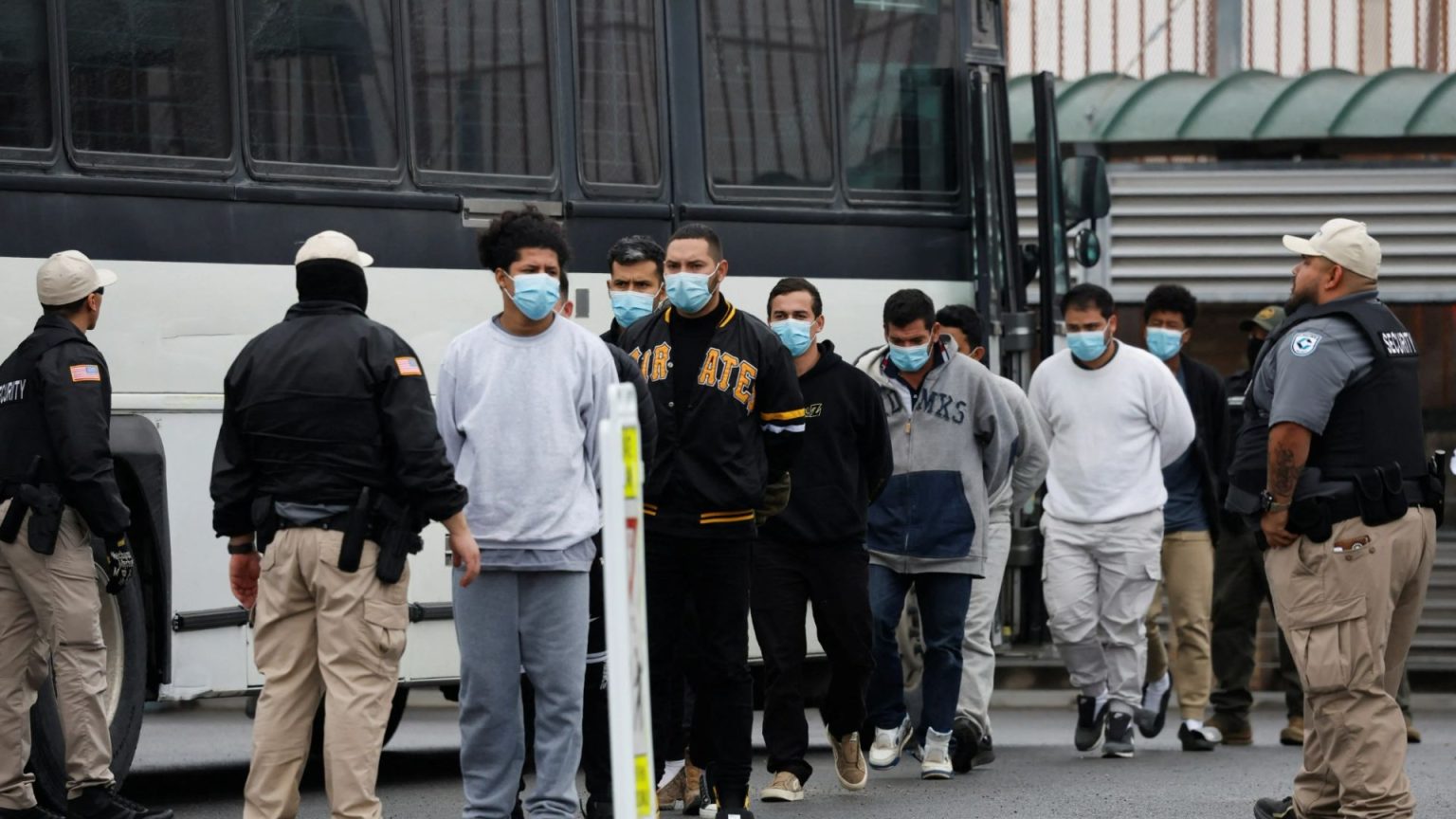President Donald Trump, in his renewed presidency, has prioritized a stringent immigration crackdown, achieving rapid success in securing agreements with seven countries to repatriate illegal migrants deported under his administration. Leveraging a combination of incentives and threats, including tariffs and sanctions, Trump has successfully pressured nations like Colombia and El Salvador to accept deportees, even going so far as to secure an agreement with El Salvador to incarcerate non-Salvadoran criminals, including US citizens, in their prisons. This aggressive approach utilizes military aircraft, such as the Boeing C-17 Globemaster III, to expedite deportations, aiming to send a strong message of deterrence to potential illegal immigrants. While Mexico hasn’t allowed US military planes to land for deportation purposes, it has agreed to bolster border security forces in cooperation with Trump’s administration.
Colombia initially resisted accepting deportees, prompting Trump to threaten tariffs and visa revocations for government officials. Following this threat, Colombia reversed its decision, accepting two planeloads of deported citizens. El Salvador, under President Nayib Bukele, struck an unprecedented agreement with the US, accepting not only Salvadoran deportees, including MS-13 gang members, but also agreeing to incarcerate violent illegal immigrants of any nationality, and even offering to imprison convicted US criminals. This agreement, hailed by Secretary of State Marco Rubio, underscores the lengths to which Trump is willing to go to enforce his immigration policies, even utilizing the controversial prison systems of other nations.
The reach of Trump’s deportation efforts extends as far as India, with a confirmed military flight carrying deportees to the country. This action occurred shortly before Trump invited Indian Prime Minister Narendra Modi for a White House visit, highlighting the strategic partnership between the two nations, likely influenced by trade considerations and shared concerns about China. Ecuador has also received deported migrants via US military aircraft, further demonstrating the global scope of Trump’s immigration crackdown. The administration emphasizes the message that illegal entry will result in swift deportation, regardless of the time and effort expended to reach the US.
Beyond the seven countries already accepting deportees, Trump’s administration is working on securing agreements with other nations, including Venezuela. The termination of protections for approximately 350,000 Venezuelans residing in the US adds pressure on Venezuela to cooperate with deportation efforts. While diplomatic relations between the two countries are strained, Trump has made repatriation of Venezuelan citizens a priority. Initial reports indicate a potential agreement with Venezuela, although this remains unconfirmed by the Venezuelan government.
Furthermore, the Trump administration has initiated military deportation flights to Guatemala and Honduras, encountering both cooperation and resistance. Guatemala received multiple flights of deportees, but reports also surfaced about the high cost associated with these military transport missions. Honduras, despite initial threats of expelling US military personnel from the country, ultimately accepted deportees on US Air Force planes. This demonstrates the complex political landscape surrounding these deportations, with countries grappling with internal pressures and international relations while responding to the demands of the US administration.
In addition to the focus on deportations, Trump’s second term agenda encompasses a wide range of issues, from declassifying documents related to historical assassinations, to reversing the ban on TikTok, addressing the transgender debate, revisiting climate change policies, and potentially banning new wind projects. He intends to reverse his predecessor’s policies on transgender military service and participation in women’s sports, signaling a return to more conservative stances on these social issues. He has also indicated a focus on economic issues, including the cost of living and the impact of recent wildfires. These diverse policy objectives further illustrate Trump’s assertive approach to governance, aiming to reshape various aspects of American society and foreign policy.











